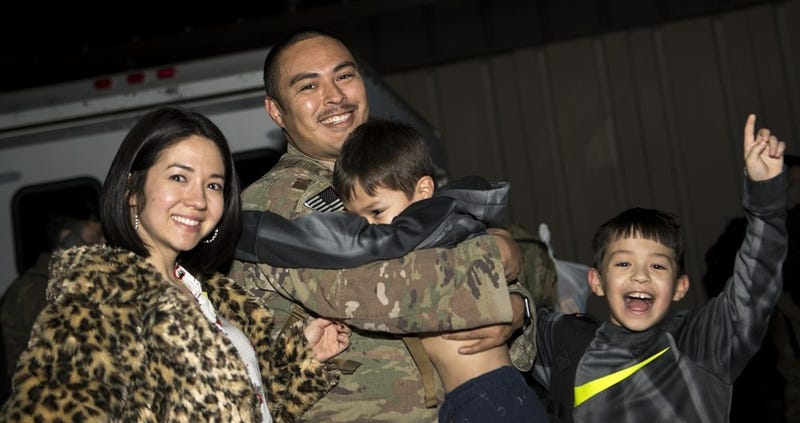
A new report by Blue Star Families highlights the unique experiences, needs, and viewpoints of military service members, veterans, and families of color.
“The Diverse Experiences of Military & Veteran Families of Color” report found that tackling disparities currently being faced by military families of color will strengthen national security and long-term military readiness.
“Every organization, community, and individual which desires to support military and veteran families will be less effective if they fail to consider the unique experiences of military and veteran families of color in their efforts,” the report states.
The report highlighted findings from a 14-month study conducted in partnership with the Institute for Veterans and Military Families. The survey was held between June 25 and July 29, 2021, and included focus groups; a new analysis of external military and veteran-related data; plus a nationwide survey of over 2,700 respondents tailored to address the unique experiences of military and veteran families of color.
"In their common goal of creating a safer world for all Americans, military families of color sacrifice just as much as their white counterparts, yet they continue to face challenges based solely on their race or ethnicity," said Kathy Roth-Douquet, CEO of Blue Star Families.
Among active duty service member respondents of color, key challenges from the survey found:
- 41% report experiencing racially- or ethnically-based discrimination or harassment by their peers at some point in their career.
- 39% report their race or ethnicity significantly or slightly hurt their ability to get ahead at work.
- 57% report they have heard their military-connected peers make racist comments or jokes about others, most commonly among Black respondents (65%), followed by Hispanic/Latinx (55%) and Asian (51%) respondents.
“Off-color jokes, racial slurs, and discriminatory comments that are (erroneously) used to build a sense of camaraderie negatively affect active-duty service members, spouses, and veteran respondents of color,” the report said.
The report added that “most respondents of color view the military’s ‘colorblind’ mentality as inaccurate and potentially corrosive and recognize racial equity work is both necessary and divisive.”
Among veteran respondents of color, key challenges from the survey found:
- 51% report experiencing racially- or ethnically-based discrimination or harassment by their peers at some point in their career.
- 44% indicate they believe their racial or ethnic identity has hurt their ability to get ahead at work.
- 65% report experiencing unfair punitive counseling or investigation in the workplace.
Among family and military spouse respondents of color, key challenges from the survey found:
- 30% report a decision not to accept PCS orders or job assignments, knowing that it may negatively impact their career opportunities.
64% among active-duty families agree that racial equity research and initiatives are necessary to improve life for military-connected families of color.
- 46% of active-duty families and 54% of Veteran families who needed food and nutrition services since January 2020 report they did not receive them.
Black and Hispanic female military spouses earn roughly 54% and 66% less than the total population, respectively, according to a new analysis of American Community Survey data.

The survey also found positive experiences and data among military families of color, particularly when compared to their civilian counterparts, including:
- 79% of active-duty service member respondents of color agree their military experience has had a positive influence on their professional growth.
- 59% of active-duty service member respondents of color report having allies in the workplace.
- Six in 10 Black and Hispanic/Latinx active-duty service member and veteran respondents hold a bachelor's degree or higher, compared to 26% of Black and 19% of Hispanic civilian counterparts.
- 51% of active-duty family respondents of color characterize their family's financial stability as better than their civilian friends and family of the same racial/ethnic background.
Respondents also detailed what they hope to see among their allies in the military, including calling out inappropriate comments of behavior, getting involved with diversity and inclusion efforts, and advocating for a more equitable service experience.
Reach Julia LeDoux at Julia@connectingvets.com.




